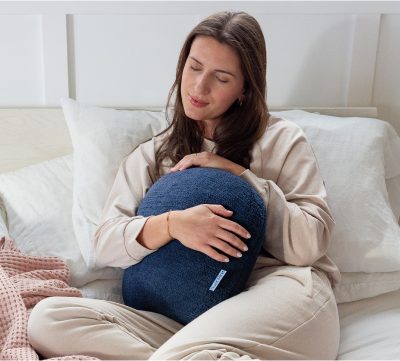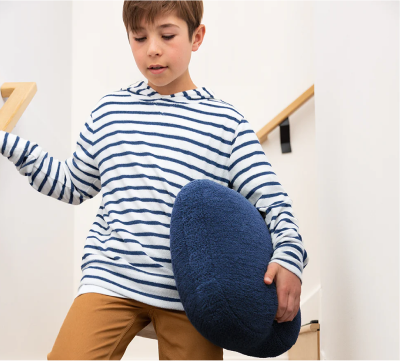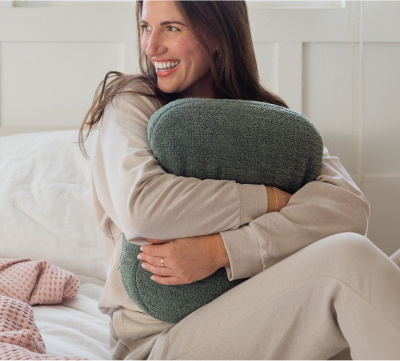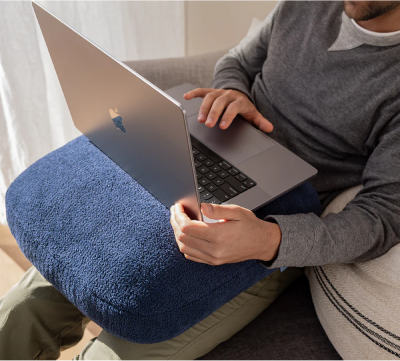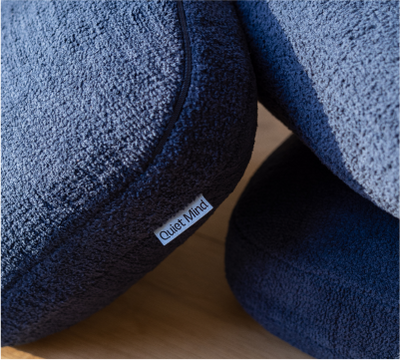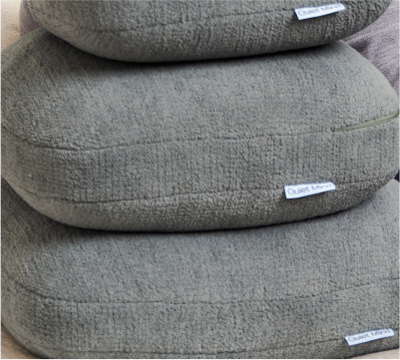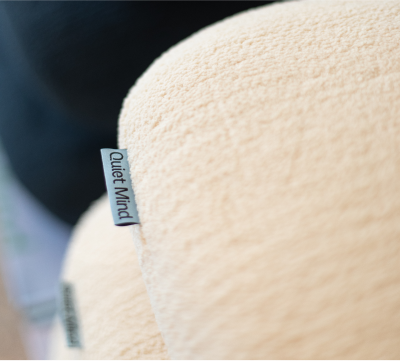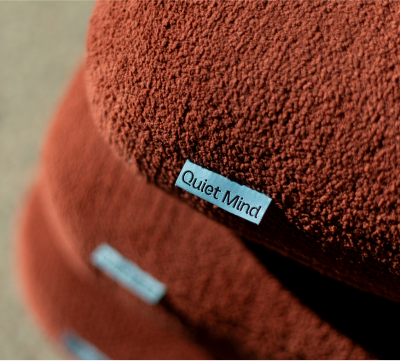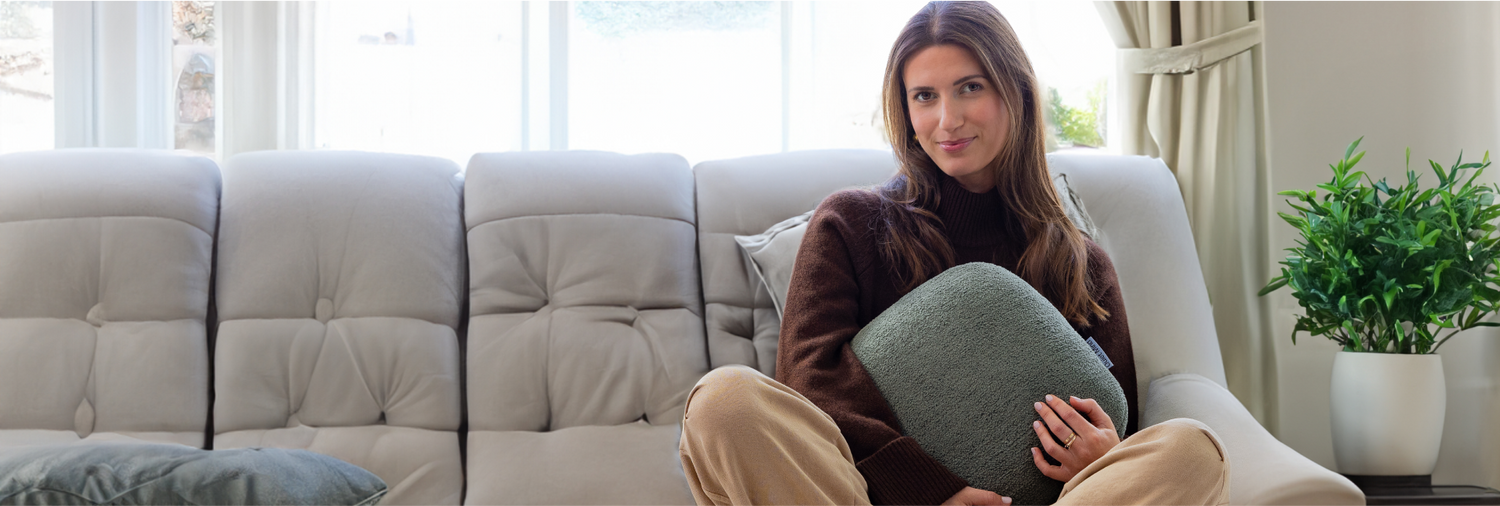Does your fear of flying keep you stuck at home? With the right tips and strategies, you can conquer flight anxiety and make your dream vacation a reality!
Many people experience extreme anxiety about the safety of flying. Others are afraid of heights or deal with claustrophobia in airplanes. Whatever the cause of your flight anxiety, these feelings can turn flying into a nerve-wracking experience. But it doesn’t have to be this way!
Below, we’ll walk you through ten flight anxiety tips to help you relax and make your next flight an enjoyable part of the journey to your final destination. Here’s how to conquer your fears and fly with confidence!
10 Foolproof Tips for Flight Anxiety
Overcoming flight anxiety is challenging, but it can be done with the right tools and techniques. Use the following strategies to conquer flight anxiety, stay calm throughout the journey, and arrive at your destination in a relaxed frame of mind.
Educate Yourself About Flight Safety
Did you know that the odds of dying in a plane crash are about 11 million to 1, while the odds of dying in a car accident are about 1 in 5,000? Flying is one of the safest modes of transportation available!
Educating yourself about flight safety will help you conquer your fears of flying. Do some in-depth research to learn about how planes work and the rigorous safety standards airlines must meet. Familiarize yourself with the safety features of airplanes and the training pilots and crew undergo to ensure your safety.
Knowing these facts can help alleviate unnecessary fears about the safety of flying, so you can approach flying with greater peace of mind.
Expose Yourself to Flying Gradually
Each positive experience with flying will help to build your confidence and reduce flight anxiety over time. Frequent exposure to air travel in a controlled and manageable way is the secret to overcoming your fears.
Begin with baby steps like watching flight videos or visiting an airport to get familiar with the sights and sounds. Then, move on to short domestic flights and gradually work your way up to longer trips as you become more comfortable.
These incremental steps allow you to adjust at your own pace, making the process of conquering flight anxiety more manageable and less overwhelming.
Travel with a Trusted Companion
Traveling with a supportive friend or family member can provide comfort, reassurance, and distraction during the flight. They can occupy you with conversation, hold your hand, or simply be there to offer a familiar presence.
Be sure to book a seat next to your companion in advance so that you’ll have easy access to their support. Explain your anxieties to them beforehand so they know what to expect and understand how they can help you during the journey.
Sharing the experience with someone you trust provides a layer of comfort and security. Your companion can also handle the practical aspects of travel, such as navigating the airport and finding your gate, to help you stay calm and relaxed.
Choose the Right Seat
Book your flight early for the most seating options. Choosing the right seat can minimize anxiety triggers and help you stay calmer during the flight.
For example, seats over the wings or near the front of the plane tend to experience less turbulence and offer a smoother ride, reducing the physical sensations that may trigger anxiety during the flight.
If you tend to get claustrophobic, reserve an aisle seat to help you feel less confined, give you easier access to the restroom, and provide a clear path to get up and stretch your legs. If you have a fear of heights, you may want to avoid window seats so you can block out the view of the ground far below.
Seat selection tools like SeatGuru allow you to review the seating layout of your plane and choose the seat that best suits your needs.
Arrive at the Airport Early
Arriving at the airport early gives you extra time to navigate security, check in, and find your gate without feeling rushed or stressed. It also provides a buffer for unexpected delays or complications, like long lines or changes to your flight schedule, reducing the potential for last-minute panic.
If you have extra time before boarding, find a quiet spot to relax. Have a healthy snack, read a book, listen to calming music, or practice breathing and relaxation techniques to help you stay calm.
Allowing for extra time gives you a sense of control, helping you remain calm and composed, and allowing you to board your flight with a calmer mindset.
Calm Your Mind with a Weighted Pillow
The Original Weighted Pillow by Quiet Mind is a game changer for reducing stress during travel. This innovative yet simple tool provides deep pressure stimulation, mimicking the sensation of a comforting hug, promoting a sense of calm, and reducing stress. It’s designed to be portable and easy to carry, making it the ideal flight companion.
Beyond comfort, our weighted pillow helps to control anxiety by enhancing the production of serotonin and melatonin, hormones that regulate mood and promote relaxation. Place it in your lap or squeeze it across your chest to help you stay calm and composed in the airport and during your flight.
Bring Comfort Items
Bring your favorite comfort items from home to help you feel more relaxed and secure by creating a soothing and familiar environment. Some great ideas include noise canceling headphones to reduce sensory overload, a cozy blanket to help you feel secure, and a sleep mask to block out light so you can relax and fall asleep.
Consider bringing a game or puzzle to keep your mind occupied and a scented item like our Lavender Weighted Pillow to provide calming aromatherapy during the flight. Creating a comforting atmosphere during your flight keeps flight anxiety at bay.
Practice Breathing and Relaxation Techniques
Deep breathing exercises, such as inhaling slowly through your nose, holding your breath for a few seconds, and then exhaling through your mouth, can help calm your nervous system. Progressive muscle relaxation using our weighted stress ball can also help to reduce physical tension and ease anxiety.
Or, consider guided meditation apps to help you focus on the present moment and let go of anxious thoughts. These techniques can provide immediate relief and help you manage flight anxiety quickly.
Distract Yourself from Anxiety with Entertainment
Bring along a variety of entertainment options to keep your mind occupied and free of anxious thoughts. Download your favorite movies or TV shows to watch, create a playlist of calming or upbeat music, or bring an engaging book or e-reader.
Podcasts and audiobooks are also great choices for immersive distraction. Having multiple options at your disposal can help make the flight time pass by more quickly and reduce flight anxiety.
Skip Caffeine and Alcohol
Alcohol and caffeine can both worsen anxiety and lead to dehydration, so it’s best to avoid them before your flight. Caffeine from coffee, soda, energy drinks, and other sources acts as a stimulant and can increase your heart rate, making you feel more anxious.
Alcohol may be relaxing initially, but it can leave you feeling more anxious later on. Opt for water and caffeine-free beverages instead to help you stay hydrated. Hydration is important for maintaining a stable mood.
Why Am I So Afraid of Flying?
Fear of flying, also known as aviophobia, can have various causes. For many, it’s the lack of control over the situation. Passengers must rely entirely on the pilots, crew, and plane. Fear of heights or enclosed spaces can also be a common trigger of flight anxiety.
Although rare, media coverage of aviation accidents can amplify these fears, making flying seem more dangerous than it actually is. Previous traumatic experiences while flying, such as extreme turbulence, can also lead to an ongoing fear of flying.
General anxiety disorders and chronic stress can also be contributing factors. Identifying the root causes of your fear of flying is the first step toward overcoming it.
What Can I Take for Fear of Flying?
Your doctor can help you explore multiple options to help manage fear of flying. Herbal supplements, like valerian root or chamomile, may be good options for promoting relaxation naturally before and during a flight. Anti-anxiety medications may also be beneficial in extreme cases. Your doctor can help you decide which options are right for you.
How Can I Get Over Fear of Flying Claustrophobia?
There are several strategies that can help you overcome fear of flying claustrophobia. Create a sense of control by choosing an aisle seat, which provides more space and easier access to move around. Visualize yourself at your destination to counteract feelings of confinement.
Desensitizing techniques, such as gradually exposing yourself to smaller, enclosed spaces, can sometimes help. Cognitive-behavioral therapy is also beneficial for creating a personalized strategy to reframe the negative thoughts that trigger claustrophobia.
When to Seek Professional Help
If your fear of flying prevents you from traveling despite your best efforts to overcome it, consider seeking professional help. Cognitive-behavioral therapy (CBT), is particularly effective for phobias like fear of flying.
If your anxiety leads to panic attacks or severe physical symptoms, a therapist can provide personalized techniques or recommend medication to help manage your fear. A mental health professional can provide you with the tools to overcome your fear so you can fly when necessary.

